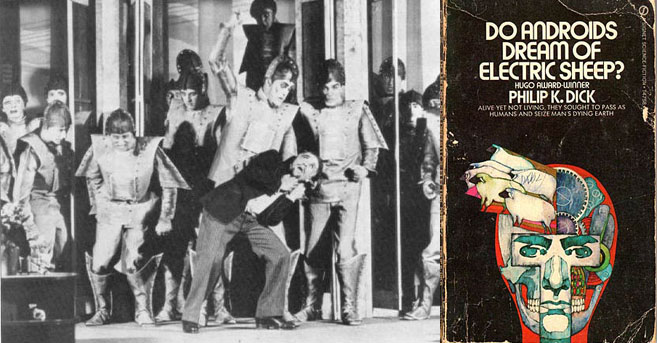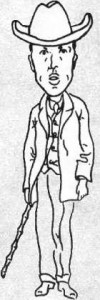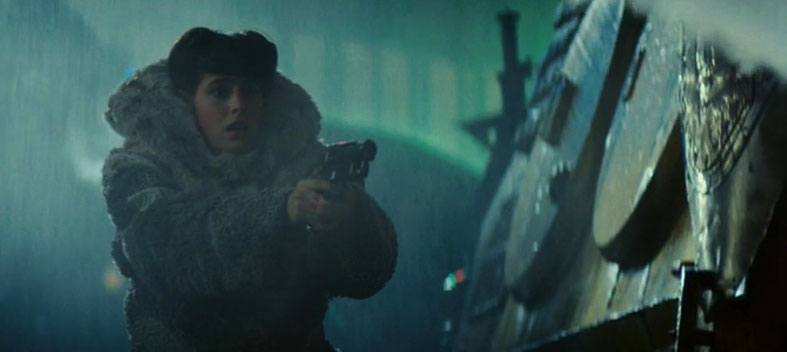The word “robot” was introduced in Karel Capek’s play R.U.R. (Rossum’s Universal Robots),1921, derived from the Czech word robota, meaning forced labour. The Webster dictionary also notes the Old Bulgarian word rabu, meaning servant. The robot was first conceived as a mechanical slave or appliance with some human resemblance. In the George Lucas film Star Wars, 1977, the lovable robots R2D2 and C3P0 are comic foils to the main action—they are garrulous servants from a tradition of comic theatre, characters who see all and yet have limited power or influence. In the play R.U.R., the robots become dissatisfied with their role as servants and stage a violent rebellion, during which all humans are killed except one. The one surviving human is then asked to make more robots, but he does not know how. The robots become conscious of their own inevitable demise. This consciousness of death, and the fear that accompanies it, elevates the robots to a human-like condition.
R.U.R. could be read as a Golem-like story of an artificial being, (The Golem, a silent horror film set in Prague starring Paul Wegener, was released in 1920). The Golem is a would-be protector and saviour who turns against the community it was designed to help. R.U.R. adds to this basic scenario a vision of a terrible genocide. The play exists historically between Henry Ford’s assembly-line automation process (unlike the Golem, the robots in R.U.R. are mass produced) and Hitler’s mad notions of eugenics. Capek died of double pneumonia in 1938, a few months before the Nazi occupation of Czechoslovakia. Unaware of Capek’s death, the Nazi secret police made a futile effort to arrest him. Unfortunately, the Nazis did capture Capek’s brother Joseph, a cubist artist, who died in Bergen-Belsen concentration camp in 1945. The robot in literature reflects ambivalent attitudes toward technology at this time.
The film Blade Runner, 1982, inspired by the novel, Do Androids Dream of Electric Sheep, 1968 by Philip K. Dick, advances the idea of robot mortality and self-consciousness from R.U.R. The name of one of the androids in the film is Rachael Rosen, which may be a reference to the Rossum in Rossum’s Universal Robots. Rossum, the inventor of the robot in R.U.R., derives his name from the Czech word rozum, meaning reason, intellect. In Blade Runner, the androids are so human-like, and have such vivid in-built memories, that it is almost impossible for them to believe they are not human. As a safety measure, the android’s creator Tyrel has programmed the androids to a four-year life span. In this story the androids rebel not so much at their harsh treatment by humans as at the cruel brevity of the life that they do have. However painful and difficult the android existence is, they want more of it.


